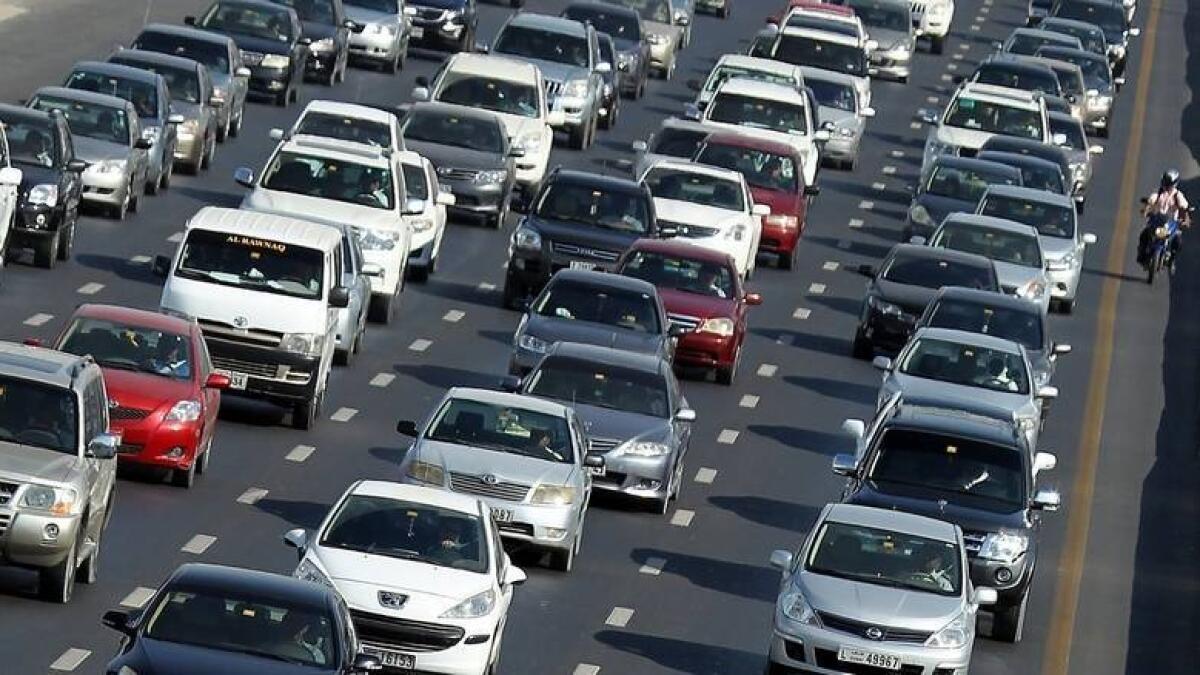
Dubai Motorists Lost Up To 35 Hours To Traffic Congestion In 2024
The emirate's population has increased by over 134,000 since the beginning of this year, reaching 3.8 million. Since January 2021, the city's population has increased by over 378,000, mainly due to the influx of foreign professionals, workers, and investors as the economy grew at an exponential pace in the post-pandemic period.
Dubai's toll gate operator Salik's data showed that registered vehicles increased 8.7 per cent year-on-year to 4.3 million due to the city's macroeconomic growth.
Stay up to date with the latest news. Follow KT on WhatsApp Channels.
The number of vehicles in Dubai during daytime hours has reached 3.5 million, according to official statistics revealed by the Roads and Transport Authority (RTA) in November last year. The emirate has recorded a 10 per cent increase in registered vehicles over the past two years, compared to a global average of 2-4 per cent.
However, the Dubai government is incessantly working on infrastructure development to smooth traffic flow across the city, pumping billions of dirhams into the system to meet the growing demand for housing and road networks.
In 2024, Dubai approved a five-year plan (2025-2029) for internal roads, covering 21 projects across 12 residential, commercial and industrial areas with 634 kilometres of new roads costing Dh3.7 billion. This project is aligned with the emirate's population growth and urban expansion.
Acknowledging the importance of advanced infrastructure, the emirate continued to develop roads and other infrastructure even during the financial crisis.
"Dubai's infrastructure is one of the main drivers, as the emirate continued to develop it even during the 2008-09 financial crisis and pandemic," Fawaz Sous, CEO of Octa Properties, told Khaleej Times.
"Dubai has continuously developed infrastructure even in a low market because that's a very smart thing to do. And it is not just roads and bridges infrastructure, but legal infrastructure, which is also very transparent," he added.
Dubai also expands flexible working hours and remote work policies to reduce traffic jams. The authorities found, following two studies, that these policies can reduce morning peak travel time in the emirate by 30 per cent.
Globally, the emirate was ranked 154th in terms of traffic congestion, much better than many major cities.
As a result of growing traffic, the speed has reduced from 35 miles per hour in 2019 to 33 in 2023 and 32 in 2024 during the peak and morning and afternoon hours. During off-peak hours, the speed improved to 45 miles per hour in 2024.
However, the last mile speed into downtown was 22 miles per hour during the morning.
The UAE pictureOverall, motorists across the UAE lost between 8 and 35 hours, with Abu Dhabi and Umm Al Quwain losing 19 and 14 hours, respectively. Abu Dhabi and Umm Al Quwain spent 5 and 7 per cent less time in traffic in 2024 than the previous year. In Al Ain and Fujairah, motorists spent 9 and 8 hours in 2024. Inrix didn't rank Ajman, Sharjah and Ras Al Khaimah in the latest study.
In 2024, peak and off-peak speeds in the UAE capital were 38 miles per hour in the morning and afternoon, the same as in the previous year.
Global situationIstanbul, New York, Chicago, Mexico City and London are the top five most congested urban areas in the global congestion Impact Ranking for 2024, losing 105, 102, 102, 97 and 101 hours in traffic congestion in 2024.
The typical US driver lost 43 hours to traffic congestion, equivalent to a full work week, which resulted in $771 worth of time lost. In the UK, drivers lost an average of 61 hours commuting to work, or about £581 in lost time, whereas on average, German drivers lost 43 hours in traffic jams, equal to €470 per driver.
Congestion cost the US more than $74 billion in 2024, a 1.7 per cent increase from 2023. Comparatively, UK drivers lost nearly £7.8 billion, up by 11 per cent.

Legal Disclaimer:
MENAFN provides the
information “as is” without warranty of any kind. We do not accept
any responsibility or liability for the accuracy, content, images,
videos, licenses, completeness, legality, or reliability of the information
contained in this article. If you have any complaints or copyright
issues related to this article, kindly contact the provider above.


















Comments
No comment